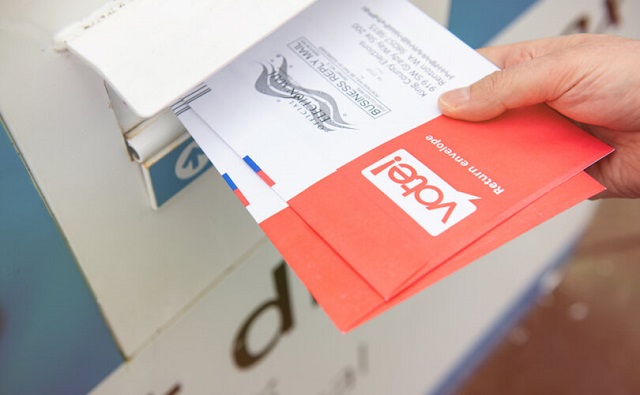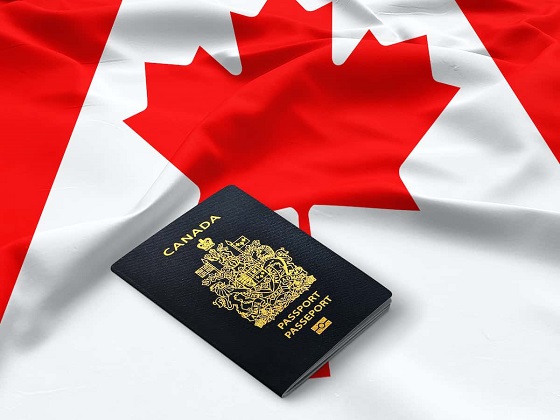Alberta
Alberta paving the way for newcomers to get to work

From the Government of Alberta: Ensuring fairness for newcomers
Bill 11, the Fair Registration Practices Act, will help newcomers get their credentials recognized, so they can quickly get to work in their fields to help grow the economy and create jobs.
The act is a key part of the government’s Fairness for Newcomers Action Plan.
Highly trained immigrant professionals can sometimes spend years jumping through regulatory hoops while their skills atrophy.
This can result in a significant loss of economic productivity for the Alberta economy. If passed, the Fair Registration Practices Act would cut red tape, remove barriers, speed up the process where possible, hold professional bodies accountable, and increase fairness and transparency.
“Our goal is to get all Albertans back to work. Too often, we hear stories of ‘doctors driving cabs’ syndrome – and we are taking action to make sure newcomers’ credentials are evaluated and assessed objectively and in a timely manner.” Jason Kenney, Premier
“It’s important for Alberta’s professional bodies to maintain high professional standards while allowing qualified newcomers to fully contribute to our economy. And not only that, giving newcomers the chance to pursue the careers they’ve trained for is, simply put, the right thing to do.” Jason Copping, Minister of Labour and Immigration
“The settlement sector in Alberta has been advocating for fair recognition of newcomer qualifications for decades. The proven detrimental impact of underemployment of newcomer professionals is felt not only within their own families, but throughout society as well. We are certain that fair recognition of credentials will improve the quality of life of all Albertans, and are grateful this legislation is being introduced so quickly by the new government.” Anila Lee Yuen, president & CEO, Centre for Newcomers
The proposed bill would:
- Provide the authority to create a Fair Registration Practices Office.
- Reduce the red tape associated with the assessment of foreign credentials.
- Work with regulators to ensure registration practices are transparent, objective, impartial and fair.
- Maintain Alberta’s high professional standards.
Bill 11 would require regulatory bodies to:
- Assess applications and communicate assessment decisions within specific time frames for interim registration decisions and within reasonable time frames for final registration decisions.
- Submit reports regarding fair registration practices to the minister responsible for the act.
“ASET is the regulator of engineering and geoscience technology practice in Alberta, and is committed to fully objective criteria for certification, and a level playing field for all applicants. Having long since adopted high standards of fairness in our admissions practices, ASET applauds the initiative for fair assessment of all applicants.” Barry Cavanaugh, CEO, Association of Science and Engineering Technology Professionals of Alberta
If passed, the legislation would come into force on proclamation.
Quick facts
- According to the Conference Board of Canada, Canadians would earn up to $17 billion more annually if their learning credentials were fully recognized.
- Immigrants are the largest group, with an estimated 524,000 international credential holders affected by a lack of learning recognition.
- Provinces such as Ontario, Manitoba and Nova Scotia already have fairness legislation to ensure that professional regulatory organizations have fair registration practices.
Alberta
Former senior financial advisor charged with embezzling millions from Red Deer area residents

News release from Alberta RCMP
Former senior financial advisor charged for misappropriating nearly $5 million from clients
On April 4, 2024, the RCMP’s Provincial Financial Crime Team charged a Calgary resident for fraud-related offences after embezzling millions of dollars from his clients while serving as a senior financial advisor.
Following a thorough investigation, the accused is alleged to have fraudulently withdrawn funds from client accounts and deposited them into bank accounts he personally controlled. A total of sixteen victims were identified in the Red Deer area and suffered a combined loss of nearly $5 million.
Marc St. Pierre, 52, a resident of Calgary, was arrested and charged with:
- Fraud over $5,000 contrary to section 380(1)(a) of the Criminal Code; and,
- Theft over $5,000 contrary to section 344(a) of the Criminal Code.
St. Pierre is scheduled to appear in Red Deer Provincial Court on May 14, 2024.
“The ability for financial advisors to leverage their position to conduct frauds and investment scams represents a significant risk to the integrity of Alberta’s financial institutions. The investigation serves as an important reminder for all banking clients to regularly check their accounts for any suspicious activity and to report it to their bank’s fraud prevention team.”
- Sgt. John Lamming, Provincial Financial Crime Team
The Provincial Financial Crime Team is a specialized unit that conducts investigations relating to multi-jurisdictional serious fraud, investments scams and corruption.
Alberta
Political parties will be part of municipal elections in Edmonton and Calgary pilot projects

Strengthening Alberta’s local elections
Alberta’s government is introducing legislation to ensure Albertans can rely on transparent, free and fair elections, and municipally-elected officials have clearer accountability measures.
In a democratic society, Albertans expect their local elections to be free and fair, and their elected officials to be held to account by clear rules that govern their local councils. The Municipal Affairs Statutes Amendment Act proposes amendments to the Local Authorities Election Act (LAEA) and the Municipal Government Act (MGA) to add greater transparency to local election processes and ensure local councils and elected officials continue to remain accountable to the citizens who elected them.
“Our government is committed to strengthening Albertans’ trust in their local governments and the democratic process that elects local leaders. The changes we are making increase transparency for Alberta voters and provide surety their votes will be counted accurately. We know how important local democracy is to Albertans, and we will work with local authorities to protect and enhance the integrity of local elections.”
Local Authorities Election Act
Albertans expect free and fair elections and that’s why it’s important we strengthen the rules that govern local elections. To strengthen public trust in local elections, Alberta’s government will eliminate the use of electronic tabulators and other automated voting machines. All Albertans should be able to trust the methods and results of local elections; requiring all ballots to be counted by hand, clarifying rules and streamlining processes for scrutineers will provide voters greater assurance in the integrity of the results.
All eligible Albertans should be able to vote in local elections without impediment. Alberta’s government will limit the barriers for eligible voters to cast a ballot by expanding the use of special ballots. Currently, special ballots can only be requested for very specific reasons, including physical disability, absence from the municipality, or for municipal election workers. By expanding the use of special ballots, the government is encouraging more voter participation.
Amendments in the Municipal Affairs Statutes Amendment Act would increase transparency in local elections by enabling political parties at the local level. Political parties would be enabled in a pilot project for Edmonton and Calgary. The act will not require candidates to join a political party in order to run for a local or municipal office, but will create the opportunity to do so.
In addition, proposed changes to the Local Authorities Election Act would allow municipalities the option to require criminal record checks for local candidates, thus increasing transparency and trust in candidates who may go on to become elected officials.
Municipal Government Act
The role of an elected official is one with tremendous responsibility and expectations. Changes proposed to the Municipal Government Act (MGA) will strengthen the accountability of locally elected officials and councils. These include requiring mandatory orientation training for councillors, allowing elected officials to recuse themselves for real or perceived conflicts of interest without third-party review and requiring a councillor’s seat to become vacant upon disqualification.
If passed, the Municipal Affairs Statutes Amendment Act will also unlock new tools to build affordable and attainable housing across Alberta. Proposed amendments under the MGA would also create more options for municipalities to accelerate housing developments in their communities. Options include:
- Exempting non-profit, subsidized affordable housing from both municipal and education property taxes;
- Requiring municipalities to offer digital participation for public hearings about planning and development, and restricting municipalities from holding extra public hearings that are not already required by legislation; and
- Enabling municipalities to offer multi-year residential property tax exemptions.
Municipal Affairs will engage municipalities and other partners over the coming months to hear perspectives and gather feedback to help develop regulations.
Quick facts
- The LAEA establishes the framework for the conduct of elections in Alberta municipalities, school divisions, irrigation districts and Metis Settlements.
- The MGA establishes the rules governing the conduct of local elected officials once on council, as well as the overall administration and operation of municipal authorities in Alberta, including any policy those authorities may wish to implement.
Related information
-

 espionage1 day ago
espionage1 day agoOne in five mail-in voters admitted to committing voter fraud during 2020 election: Rasmussen poll
-

 Business1 day ago
Business1 day agoHonda deal latest episode of corporate welfare in Ontario
-

 Automotive23 hours ago
Automotive23 hours agoThe EV ‘Bloodbath’ Arrives Early
-

 CBDC Central Bank Digital Currency14 hours ago
CBDC Central Bank Digital Currency14 hours agoA Fed-Controlled Digital Dollar Could Mean The End Of Freedom
-

 Brownstone Institute13 hours ago
Brownstone Institute13 hours agoThe Numbers Favour Our Side
-

 Frontier Centre for Public Policy9 hours ago
Frontier Centre for Public Policy9 hours agoHow much do today’s immigrants help Canada?
-

 Addictions2 days ago
Addictions2 days agoWhy can’t we just say no?








